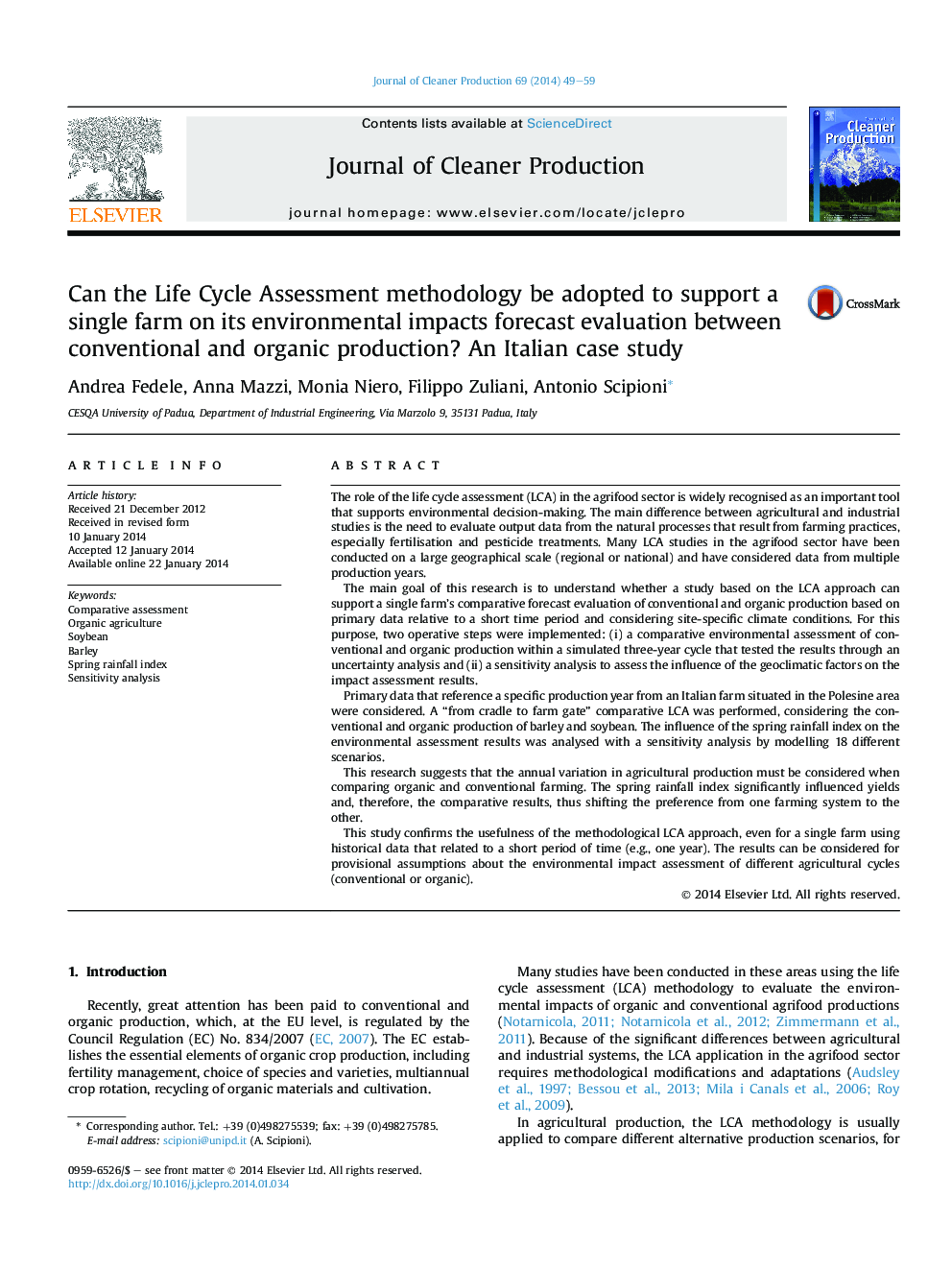| کد مقاله | کد نشریه | سال انتشار | مقاله انگلیسی | نسخه تمام متن |
|---|---|---|---|---|
| 1745048 | 1522177 | 2014 | 11 صفحه PDF | دانلود رایگان |
• Comparative impact assessment between organic and conventional agriculture is applied.
• One year production primary data from a single farm are considered.
• A simulated crop rotation is assessed.
• Spring rainfall index is used for a sensitivity analysis.
• Results can be considered for environmental forecast evaluation.
The role of the life cycle assessment (LCA) in the agrifood sector is widely recognised as an important tool that supports environmental decision-making. The main difference between agricultural and industrial studies is the need to evaluate output data from the natural processes that result from farming practices, especially fertilisation and pesticide treatments. Many LCA studies in the agrifood sector have been conducted on a large geographical scale (regional or national) and have considered data from multiple production years.The main goal of this research is to understand whether a study based on the LCA approach can support a single farm's comparative forecast evaluation of conventional and organic production based on primary data relative to a short time period and considering site-specific climate conditions. For this purpose, two operative steps were implemented: (i) a comparative environmental assessment of conventional and organic production within a simulated three-year cycle that tested the results through an uncertainty analysis and (ii) a sensitivity analysis to assess the influence of the geoclimatic factors on the impact assessment results.Primary data that reference a specific production year from an Italian farm situated in the Polesine area were considered. A “from cradle to farm gate” comparative LCA was performed, considering the conventional and organic production of barley and soybean. The influence of the spring rainfall index on the environmental assessment results was analysed with a sensitivity analysis by modelling 18 different scenarios.This research suggests that the annual variation in agricultural production must be considered when comparing organic and conventional farming. The spring rainfall index significantly influenced yields and, therefore, the comparative results, thus shifting the preference from one farming system to the other.This study confirms the usefulness of the methodological LCA approach, even for a single farm using historical data that related to a short period of time (e.g., one year). The results can be considered for provisional assumptions about the environmental impact assessment of different agricultural cycles (conventional or organic).
Journal: Journal of Cleaner Production - Volume 69, 15 April 2014, Pages 49–59
